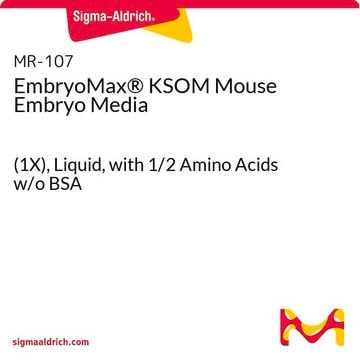G5149
Gly-Gln monohydrate
≥97% (HPLC), powder
Synonym(s):
Glycyl-L-glutamine
About This Item
Recommended Products
product name
Gly-Gln monohydrate, ≥97% (HPLC)
Quality Level
Assay
≥97% (HPLC)
storage temp.
−20°C
SMILES string
O.NCC(=O)N[C@@H](CCC(N)=O)C(O)=O
InChI
1S/C7H13N3O4.H2O/c8-3-6(12)10-4(7(13)14)1-2-5(9)11;/h4H,1-3,8H2,(H2,9,11)(H,10,12)(H,13,14);1H2/t4-;/m0./s1
InChI key
KLFWVRQACSYLOH-WCCKRBBISA-N
Looking for similar products? Visit Product Comparison Guide
Amino Acid Sequence
General description
Application
- as a supplement in Dulbecco′s modified Eagle medium (DMEM) to culture equine embryos
- as a supplement in DMEM/F-12 to culture cleaved horse embryos
- in the human tubal fluid (HTF) medium to study ammonium accumulation in commercially available embryo culture media during incubation and storage
Storage Class Code
11 - Combustible Solids
WGK
WGK 3
Flash Point(F)
Not applicable
Flash Point(C)
Not applicable
Personal Protective Equipment
Certificates of Analysis (COA)
Search for Certificates of Analysis (COA) by entering the products Lot/Batch Number. Lot and Batch Numbers can be found on a product’s label following the words ‘Lot’ or ‘Batch’.
Already Own This Product?
Find documentation for the products that you have recently purchased in the Document Library.
Customers Also Viewed
Articles
Importance and uses of glutamine in hybridoma and mammalian cell culture
Importance and uses of glutamine in hybridoma and mammalian cell culture
Importance and uses of glutamine in hybridoma and mammalian cell culture
Importance and uses of glutamine in hybridoma and mammalian cell culture
Our team of scientists has experience in all areas of research including Life Science, Material Science, Chemical Synthesis, Chromatography, Analytical and many others.
Contact Technical Service












